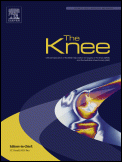
Arthroplasty
Evaluation of rotational alignment with PSI versus standard instruments in TKA
This report has been verified
by one or more authors of the
original publication.
Knee. 2016 Mar;23(2):186-90
Six randomized controlled trials, including a total of 506 patients, were selected for inclusion into this meta-analysis investigating the effect of patient-specific instrumentation (PSI) of rotational alignment of components following total knee arthroplasty. Sufficient data was available to pool for the incidence of femoral component rotational outliers, defined as deviation from planned rotational alignment exceeding 3 degrees. The result, after addressing a unit-of-analysis error in the primary analysis that was discussed with the authors of the publication, was a non-significant difference in femoral rotational outliers between PSI and conventional instrumentation cohorts. Tibial rotational alignment was reported in only one included study, and demonstrated no significant difference in mean rotational alignment of the tibial component between groups.
Unlock the full article
Get unlimited access to OrthoEvidence with a free trial
Start TrialCritical appraisals of the latest, high-impact randomized controlled trials and systematic reviews in orthopaedics
Access to OrthoEvidence podcast content, including collaborations with the Journal of Bone and Joint Surgery, interviews with internationally recognized surgeons, and roundtable discussions on orthopaedic news and topics
Subscription to The Pulse, a twice-weekly evidence-based newsletter designed to help you make better clinical decisions
Exclusive access to original content articles, including in-house systematic reviews, and articles on health research methods and hot orthopaedic topics
Or continue reading this full article
Register Now

Subscribe to "The Pulse"
Evidence-Based Orthopaedics direct to your inbox.





































